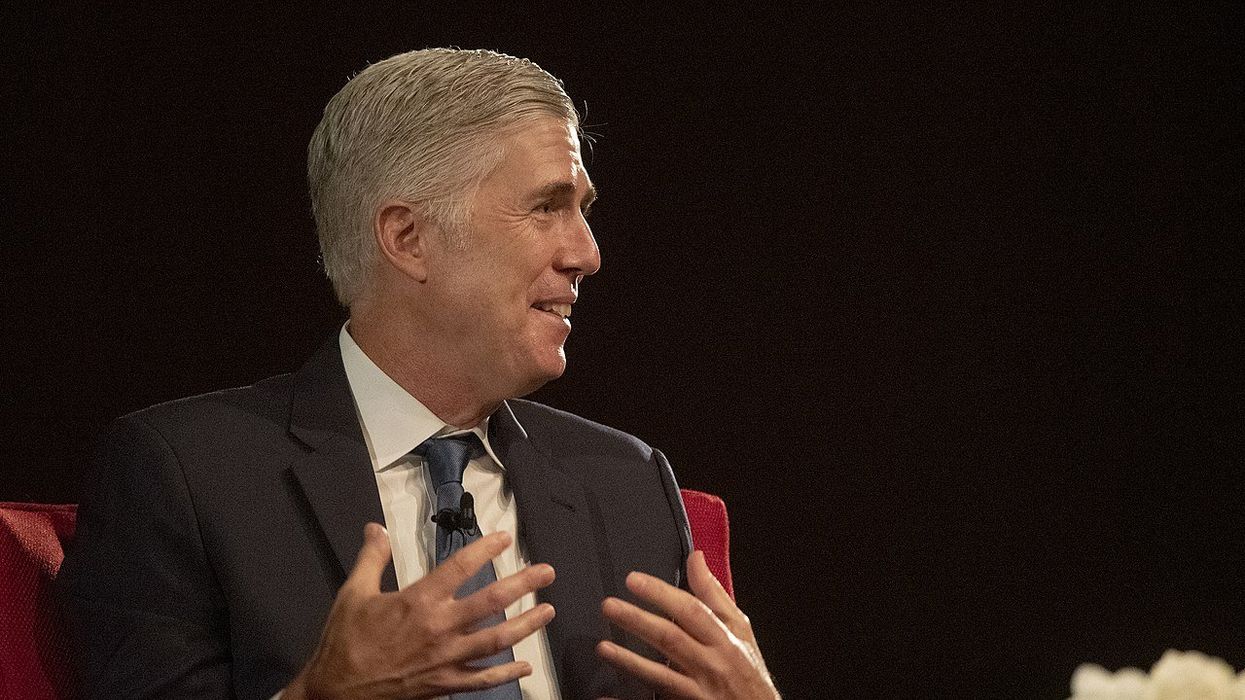'We have doubts': Authenticity of 'customer' in Supreme Court gay rights ruling called into question


On Friday, June 30, gay rights activists were bitterly disappointed when the U.S. Supreme Court handed down its 6-3 decision in 303 Creative LLC v. Elenis and ruled against a Colorado law that prohibited businesses from discriminating against gays.
The lawsuit was brought by the far-right Alliance Defending Freedom (ADF) and Lorie Smith, a Colorado-based graphic artist and evangelical Christian fundamentalist who argued that designing wedding websites for gay couples would violate her religious views. The High Court's GOP-appointed supermajority agreed with Smith, and the three dissenters were all Democratic appointees: Justice Sonia Sotomayor, Justice Ketanji Brown Jackson and Justice Elena Kagan.
President Joe Biden criticized the 303 Creative ruling as an invitation to discriminate against gay Americans. But far-right Chistian fundamentalist groups like ADF have been hailing it as a victory for religious freedom.
READ MORE: 'Nuclear hypocrisy': Legal experts stunned by SCOTUS’ 'weird' ruling in LGBTQ rights case
In her lawsuit, Smith said that a request to design a website for a gay couple came from a man named "Stewart." According to Associated Press reporters Alanna Durkin Richer and Colleen Slevin, however, "Stewart says it never happened."
Richer and Slevin, in a report published on July 3, explain, "The revelation has raised questions about how Lorie Smith's case was allowed to proceed all the way to the nation's highest court with such an apparent misrepresentation and whether the State of Colorado, which lost the case last week, has any legal recourse."
According to Richer and Slevin, Stewart's "revelation" raises some questions: (1) "What role did the claim play in the case?" (2) "Could the revelation impact the case now?" and (3) "Has anything like this happened before?"
"Two documents Smith filed with the Supreme Court briefly mention that she had received at least one request to create a website celebrating a same-sex wedding but do not elaborate," Richer and Slevin report. "The request stated that Stewart and his fiancé Mike were looking for design work on things like invitations and place-setting cards for their upcoming wedding. 'We might also stretch to a website,' the form said. Lawyers for Colorado wrote, in their brief to the Supreme Court in August, that it did not amount to an actual request for a website and the company did not take any steps to verify that a 'genuine prospective customer submitted the form.'"
READ MORE: SCOTUS anti-LGBTQ case includes 'falsified' claim: report
Slevin adds, "It's not clear whether the state took any steps to verify whether Stewart — whose contact information was included in court papers — was a real potential customer."
Erwin Chemerinsky of the UC Berkeley Law School in Northern California believes that Stewart is definitely relevant to the case.
Chemerinsky told AP, "It's something that should've come up in the litigation, because then, what the Court should have done is say: We have doubts about this, we can't resolve it, we send it back to the federal district court."
READ MORE: Supreme Court preserves college preferences for wealthy whites
Find the Associated Press' full report at this link.